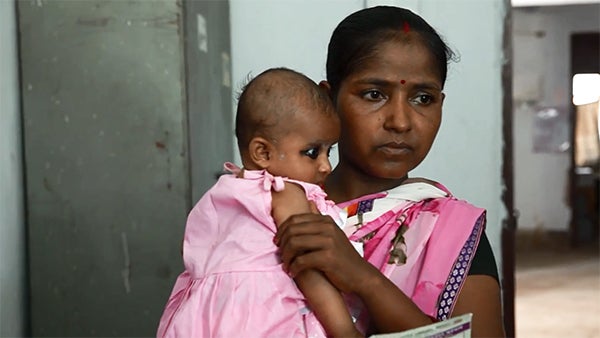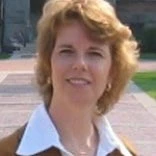
How many bank accounts do you have? One, two or more? For people in developed countries, a bank account is a fact of everyday life. A constant presence. Something that is pivotal to your home, your work and your family. But imagine if you didn’t have one. How would you be paid? How could you pay for your rent or mortgage, your food, utility bills, and so on?
This is actually the reality for far too many citizens of developing countries. I live in New Delhi, India. It’s a city of contrasts. One where the hum of commerce is a living testament to the economic growth of recent years but, even here, the nation’s capital, financial inclusion is anything but the norm. We’re trying to change that, starting in the nearby state of Bihar.
Gear up to stay up
I’ve worked in development for 27 years. I’ve had the opportunity to work in many low-income countries around the world but few have been as greatly in need of development as Bihar, where 80% of its 110 million people still live on less than a dollar a day. With this level of extreme poverty, there are clearly many priorities for economic development and promoting greater prosperity. Financial inclusion, though, has a myriad of benefits, ranging from household consumption and wellbeing to business development.
Given the scale of poverty, it is perhaps unsurprising that Bihar also ranks lowest among the Indian states for its health indicators. Health payments, which are largely manual and cash-based, have not been very efficient, with delays in the transfer of payments of several months being all too frequent. And that’s just the tip of the iceberg.
A baseline study conducted by IFC, in 2013 revealed that while 99% of frontline health workers have a bank account, only 10% of women health program beneficiaries have one. In addition, health workers and officials spend between five and 18 days a month on payment administration rather than giving care. The average wait to receive payments is two months, while health workers wait even longer – 191 days on average. Finally, women need to travel long distances to collect funds, an average 13km to the nearest health center and 17km to their nearest bank.
Giving hope
In August 2012, IFC, the private sector investment arm of the World Bank group, partnered with the State Health Society of Bihar and the Bill and Melinda Gates Foundation to maximize technology to improve the delivery of the state’s health services in Bihar. Specifically, we developed a web-based system, Public Financial Management System (PFMS), originally known as Health Operations Payments Engine (HOPE), which automates the calculation, authentication and recording of payments, enables centralized payment processing, and electronically transfers incentive payments and/or salaries to health workers, private healthcare providers and beneficiaries.
The system also approves events leading to payments, and transfers funds electronically into the recipients’ bank accounts.
But we also wanted to focus on capacity-building, ensuring that the state government staff – and not our team – would be responsible for the system’s delivery. With this in mind, we undertook extensive training and capacity-building exercises for health officials and frontline health workers.
PFMS started making live payments in five districts in April 2014, and by June 2015 it had already processed incentive payments to the value of 11 million Indian rupees. Our early impact evaluation revealed that it has freed up to one-third of all medical practitioners’ time for providing health services.
The government of Bihar has now decided to scale up this health payment engine across the entire state by 2016. The payment engine will soon be adapted for use in another state, Uttar Pradesh, with pan-state coverage by 2019. By then, it will be processing payments worth $500 million annually and reaching out to 6 million program beneficiaries and frontline health workers in Bihar and Uttar Pradesh.
Gateway to development
The health benefits of the project - while crucial – represent only one aspect of the story. Just as important is how it brings people into contact with financial services for the first time. As a result of automating health payments, many beneficiaries and volunteer health workers now have their first bank account, which in the future they can use for other savings, money transfers or other financial services.
Critical to its success has been our progress in ensuring that the state government has ownership of the project. We are a big team, numbering more than 200 in Bihar, including all contractors, but it is only when our government partners take full responsibility for the project that we achieve real sustainable progress. We are there as enablers and bring global expertise and practices but, fundamentally, this is a government program and will always be so.
I’ve done a lot of work in anti-money laundering, agri-finance, and financial sector regulation in my career, but my core passion is financial inclusion and anything that can unleash the power of the financial sector to help households and businesses. This project is doing just that – saving money, saving time and saving lives.
An earlier version of this blog post originally appeared in the Centre for Public Impact’s blog, under the title Money Talks
Related materials:
Feature Story: Digitizing Cash-transfers Improves Women’s Health in Bihar, India
Video: How Getting Paid on Time Leads to Better Healthcare Delivery
Infographic: Delivering Better Health and Bank Accounts to Women


Join the Conversation